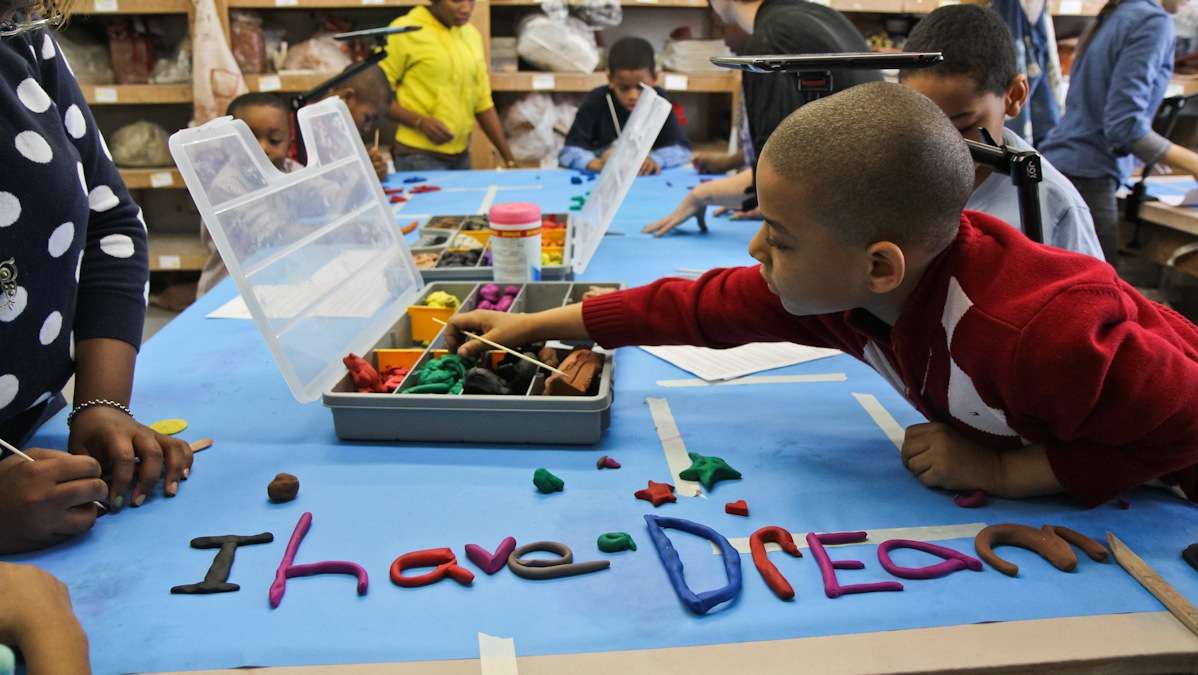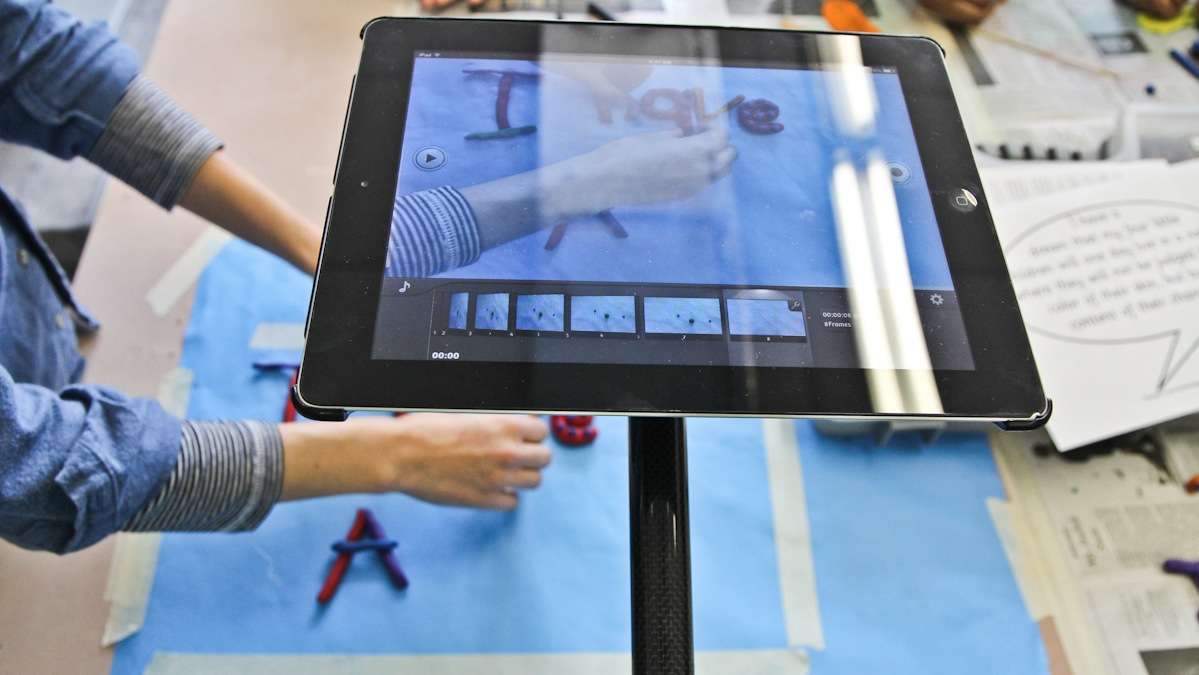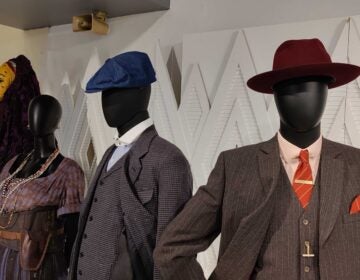Review: A rush from ‘The Disappearing Quarterback’
-

Students are shown participating in a program at The Clay Studio in Philadelphia's Old City. (Kimberly Paynter
-

-

-

-

-

-

-

-

-

-

-

-

-

-

-

-

-

-

-

-

When Mike Boryla talks about football, anything to do with the game, you’re compelled to listen. Boryla was an Eagles quarterback for three seasons, beginning in 1974, and when he talks about the game and the peripheral stuff that goes along with it – the rituals, the camaraderie, the grueling practices, the dangers – his accounts are first-hand, and you’re hearing them in a way that’s special.
NFL players, present or past, don’t generally talk about football the way Boryla (pronounced ba-RIL-la, like the pasta brand) does in “The Disappearing Quarterback,” the one-man show he wrote and delivers as a world premiere in the Plays & Players season. First off, Boryla, 62, has been away from the game for more than three decades, and he speaks with seasoned thoughts about his life in the NFL. He’s also a guy who, to hear him tell it, is at home throwing a tight spiral or reading a good book (including the Good Book, which figures into his script), more the pensive loner than a party boy.
This comes through nicely in the stories he chooses to tell – and perhaps it’s his utter lack of polish as an actor that makes his loosely arranged script of anecdotal memories and down-home commentary so oddly appealing: This is a real football player trying to tell us what the game has meant, and not meant, to his life. You could call it an extended Ted Talk, at 75 minutes, although “The Disappearing Quarterback” is not altogether uplifting. But like Ted Talks, it has elements of insight and candor, and a genuine person on the stage.
It also has a sincerity often lacking in one-person stage bios, which is in itself refreshing. Boryla’s show is not an indictment of football, although he begins and ends “The Disappearing Quarterback” with plain talk about concussion, and the notion of long-term injury floats through his stories like a water-snake in a river current. Nor is “The Disappearing Quarterback” a diatribe, although Boryla has a clear sense that he put himself at risk as a toy of NFL owner-gods and that three concussions later, football players need a culture that really cares about head injuries – the sort of long-term medical support that a current federal court suit based in Philadelphia seeks to ensure. (The suit is never mentioned in the play.)
“The Disappearing Quarterback” doesn’t work on all theatrical pistons. The script is a series of memories retold in a vaguely chronological order, and frequently without sharpened punchlines or follow-through. A story about former Steelers quarterback and current TV analyst Terry Bradshaw, for instance, has no ending or clear reason to be told. The color blue figures into the narrative, but I couldn’t tell you why. Boryla had at first written a full play, and sent it to Daniel Student, Plays & Players’ producing artistic director. Student, who directs the show, suggested it would be better as a one-man vehicle for Boryla himself, and the former pro-bowler rewrote it. The script needs another edit for transitions and punch.
All football players, Boryla tells us, are actors. That may be so, but not always off the gridiron. Boryla, who tries to tell his stories as if he really means them, sometimes attempts a little dramatic spin – and why not? It’s a play. Then again, it’s more a one-way conversation, and the dramatic flourishes sometimes come off as a little forced.
In the end, though, none of this seems to matter. The night I saw “The Disappearing Quarterback,” 15 minutes into the show Boryla was holding the audience in his hands, which are rather large and made for manipulating a football. I suspect that several athletes will have his back at the show; the night I saw it, former Eagles linebacker Frank LeMaster sat in the audience and smiled knowingly at Boryla’s musings. You don’t have to understand much about football to appreciate “The Disappearing Quarterback.” You just have to be a good judge of character to sense when someone is speaking from the heart.
_
“The Disappearing Quarterback” runs through Feb. 2 in a production by Plays & Players at the third-floor studio of Plays & Players Theatre, Delancey Place between 17th and 18th Streets. 866-811-4111 or www.playsandplayers.org.
WHYY is your source for fact-based, in-depth journalism and information. As a nonprofit organization, we rely on financial support from readers like you. Please give today.




